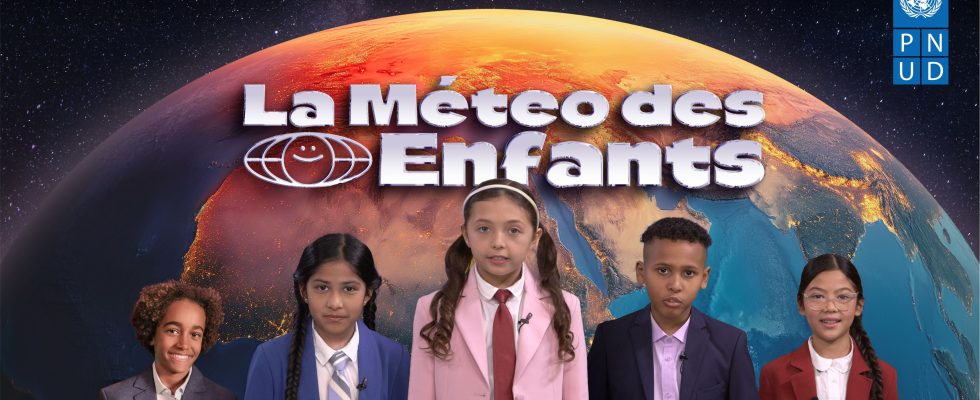The initial intention was laudable. By launching its new campaign entitled “Children’s Weather” on Thursday March 21 on television channels around the world, the United Nations Development Program (UNDP) and the International Meteorological Organization (WMO) are once again ringing the bell alarm. “From north to south and from south to north, climate-wise, nothing is going well” Noam explains to us in this video where the future comes down to a series of extreme weather events.
Not.
A.
Minute.
To loose.This is about the future of future generations.
Let’s leave clear skies for the children around us.
Get involved NOW: https://t.co/cTVWSBxYyj #ChildrenWeather pic.twitter.com/ec0NzKzCb8
— UN Development (@pnudfr) March 21, 2024
“Imagine my situation when I grow up: drought, heatwave, forest fires… Should I continue? It’s scary, isn’t it?” continues the young boy who reminds us that inaction will cost a whopping 600,000 billion dollars worldwide and that There is a solution: the development of renewable energies. Even if guilt and fear sometimes push people to action, we can question the effectiveness of the message. Certainly, the transition is not going fast enough. It must still be translated into numerous concrete measures at all levels (citizens, cities, States). But in a tense social context where climate fatigue lurks, raising the specter of disasters by even calling them a forecast at the end of the film risks pushing more towards civil disobedience and eco-anxiety than towards a stronger commitment to the part of the citizens.
The message conveyed by the UNDP and the WMO poses another problem. In the bulletin, the only options mentioned visually or orally in terms of energy are wind and solar power. Not a word about nuclear power. However, we can no longer ignore the shift taken on this subject at the French and international levels. Coincidence of the calendar: the President of the European Commission Ursula von der Leyen recalled the day before, in front of industry players gathered in Brussels, how useful the energy of the atom could be in the future. Thanks to nuclear power – a controllable source as opposed to renewable energies – we can achieve our climate objectives, reduce our dependence on fossils, secure our energy supplies, defend our competitiveness.
Other information slipped in by the EU representative, nuclear power remains the second source of low-emission electricity in the world behind hydroelectricity, the other major absence from the UN weather forecast. “While it is important to be lucid about the state of our planet and the impact of our activities, it is also essential to maintain hope by remembering that solutions exist,” Jacques Lecomte, member of the Scientific Council, recently recalled. of the Foundation for Nature and Man. But they still need to be named correctly.
